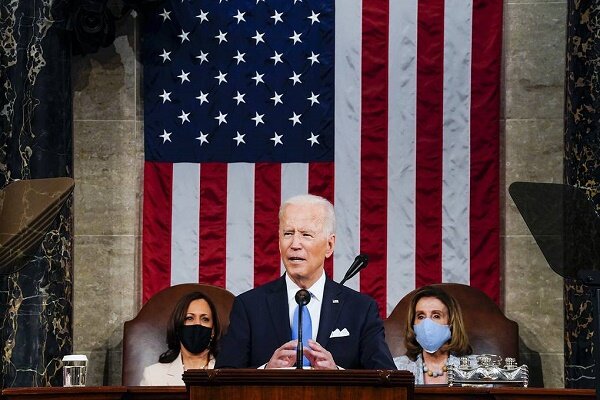The excessive demands put forward by the United States and its refusal to remove hundreds of anti-Iran sanctions related to the 2015 nuclear deal have been behind the complications hindering the talks underway in Vienna, Austria, on a potential revival of the accord.
Press TV has obtained information that the United States is complicating the Vienna talks by insisting on keeping in place 500 anti-Iran sanctions included in the 2015 nuclear deal, officially known as the Joint Comprehensive Plan of Action (JCPOA).
Washington’s insistence on keeping these 500 persons and organizations under sanctions will prevent Iran from benefiting from the economic privileges offered under the JCPOA. It will also get in the way of Iran normalizing its trade relations with the rest of the world in contravention of Article 29 of the deal, according to the information.
The JCPOA has been in disarray since May 2018, when former US president Donald Trump abandoned the deal and re-imposed the anti-Iran sanctions that the JCPOA had lifted.
The Trump administration also placed additional sanctions on Iran under other pretexts not related to the nuclear case as part of its “maximum pressure” campaign.
Following a year of strategic patience, Iran resorted to its legal rights stipulated in Article 26 of the JCPOA, which grants a party the right to suspend its contractual commitments in case of non-compliance by other signatories.
Now, the new US administration says it wants to compensate for Trump’s mistake and rejoin the deal, but it is showing an overriding propensity to maintain some of the sanctions as a tool of pressure.
Tehran insists that all sanctions should first be removed in a verifiable manner before the Islamic Republic reverses its remedial measures.
Since early April, envoys from Russia, China, Germany, France, Britain and Iran have held several rounds of talks in Vienna aimed at revitalizing the JCPOA and bringing the US back to compliance.
A US delegation is also in the Austrian capital, but it is not attending the discussions because the United States is not a party to the JCPOA.
MAH/PR

























Your Comment